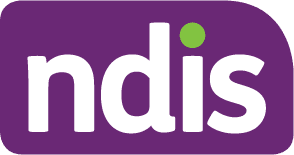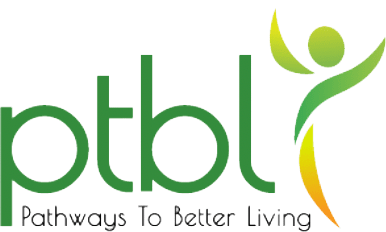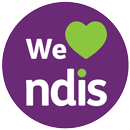Pathways to Better Living Pty Ltd – Restrictive Practices Policy
Introduction
This policy is about regulated restrictive practices. A restrictive practice is defined as any practice or intervention that has the effect of restricting the rights or freedom of movement of a person with disability, with the primary purpose of protecting the person or others from harm.
- Applies to supports and services provided to participants with a positive behaviour support plan that includes the use of a regulated restrictive practice
- Applies when a prohibited practice or unauthorised regulated practice is used
- Applies to all representatives including key management personnel, directors, full time workers, part time workers, casual workers, contractors and volunteers
All types of restrictive practices
| Type | Description |
| Seclusion | Sole confinement of a person with disability in a room or physical space at any hour of the day or night where voluntary exit is prevented, impeded or not facilitated |
| Chemical restraint | The use of medication or chemical substance for the primary purpose of influencing a person’s behaviour or movement. It does not include the use of medication prescribed by a medical practitioner for treating a diagnosed mental illness or physical condition |
| Mechanical restraint | The use of a device to prevent, restrict or subdue a person’s movement for the primary purpose of influencing their behaviour. It does not include the use of devices for therapeutic or non-behavioural purposes. For example, it may include the use of a device to assist a person with functional activities as part of occupational therapy, or to allow for safe transportation |
| Physical restraint | The sustained or prolonged use or action of physical force to prevent, restrict or subdue movement of a person’s body, or part of their body, for the primary purpose of influencing a person’s behaviour |
| Prohibited practices | Any practice or action that may be experienced by a person as noxious, unpleasant or painful. Types of practices that are prohibited include aversive restraints, consequent driven practices, exclusion or psychosocial restraints. |
| Environmental restraints | Any restriction to a person’s free access to all parts of their environment. For example: Locking cupboards and refrigeratorsTaking away things people likeStopping the person going to places they enjoy |
Regulated restrictive practices
Of the types of restrictive practices, only regulated restrictive practices are allowed and then only with strict controls in place. Regulated restrictive practices include:
- Seclusion
- Chemical restraint
- Mechanical restraint
- Physical restraint
- Environmental restraint
Any form of restrictive practice other than regulated restrictive practices are considered prohibited practices.
Prohibited practices
Prohibited practices are practices that must never be used. They may unlawful or unethical. The use of any prohibited practice may be a criminal offence or civil wrongdoing. Any use of a prohibited practice is a reportable incident under the NDIS (Incident Management and Reportable Incidents) Rules 2018 (Cth).
Whilst each state or territory defines what is a prohibited practice examples include:
- any hold or restraint that restricts breathing – e.g. supine, prone and basket holds
- aversive, noxious, or potentially painful practices – e.g. pinching, spraying an aerosol can close to the skin, unwanted cold or hot showers or baths
- any use of a medication other than its intended prescribed use
- any unauthorised use of a restrictive practice
- denying key needs – e.g. denying or implying denied access to water
- disproportionate response to action (over-correction) – e.g. if a participant throws rubbish on the floor, an over corrective response would be making them clean the entire bedroom
Impact of restrictive practices
Research has demonstrated the use of restrictive practices does not effectively address underlying behavioural functions nor modify persistent concerning behaviour.
Research has also demonstrated the impact of routine and ongoing restrictive practices has on participants, participant support networks and the workers can be profoundly negative.
The use of restrictive practice whether on a single or ongoing occasion, according to the NDIS Quality and Safeguards Commission can result in:
- participants feeling a loss of dignity
- reduced interpersonal relationships between participants and others
- limited freedom and potential human rights violations
- medication dependency
- physiological and neurological changes
- increased mental health illnesses
- trauma and psychological distress including post traumatic stress disorder (PTSD) for participants, workers and support networks
- secondary forms of concerning behaviours in response to the use of restrictive practices.
It is with this knowledge and understanding we continuously monitor, evaluate and seek to reduce the use of restrictive practices with the goal of total restrictive practice use elimination.
Supporting participants when a restrictive practice has been used
If a restrictive practice is used, participants and workers will be immediately supported to manage the impact of the use of restrictive practices.
If the incident is deemed a reportable incident, a participant should be immediately referred to, and assessed by a medical practitioner (where appropriate). The immediate procedure following the use of a restrictive practice for a participant must be detailed in the participants behaviour support plan and detailed in the incident report submitted to the NDIS Commission.
Participants and with their consent their support network should be included in the review of their support plan following the use of any restrictive practice.
Training and worker requirements
The use of restrictive practices poses a serious risk due to the significant and severe impact they have on participants and their support networks, as well as workers.
To mitigate the risks workers who support participants with a positive behaviour support plan (PBSP) that include restrictive practices will be trained and at a minimum understand:
- what a restrictive practice is
- what an authorised and unauthorised regulated restrictive practice is, including when, why and how they are to be used according to the positive behaviour support plan
- their obligations to safely and effectively implement plans
- the reporting obligations defined in the NDIS (Incident Management an Reportable Incidents) Rules 2018 (Cth)
- the ethical and safety obligations following the use of restrictive practices including medical assessments, psychological assistance and debriefing
- this policy.
Workers who implement the use of restrictive practices will work collaboratively with the behaviour support practitioner who developed the PBSP plan as well as all relevant allied health workers to ensure the safest and most effective plan is implemented.
All training will be recorded on our Staff training and development register and periodically reviewed to ensure up-to-date knowledge and practices.
Restrictive practice principles
- We support the reduction and elimination of the use of restrictive practices. Any use of restrictive practice will take into consideration the participants cultural and communicative needs. We will only use restrictive practices:
- As a last resort, and with proof all other ways of evidence-based, person-centred and proactive strategies have been tried first
- If the behaviour might harm the person or others
- For the shortest time possible
- In the least restrictive way possible
- That are proportionate and justified
- If the participant or the participant’s guardian has given consent
- If the appropriate authorisation by state or territory bodies has been granted
- If we have first understood why the participant has complex behaviour and how the restrictive practice will affect the rights of the participant
- If the practice is written in a NDIS lodged positive behaviour support plan developed by a positive behaviour practitioner or specialist in consultation with the participant, the participant’s family, support network and/or advocate.
We will be transparent and accountable for the use of restrictive practices through accurate record keeping and reporting.
We will communicate directly with the NDIS for clarification and guidance when required.
We will regularly review records to assess the success, need and application of restrictive practices
Restrictive practices considerations
- Participants should be consulted about their behaviour in a way they are most likely to understand, including details of the supports to address their behaviour and the use of restrictive practices
- Participants should be aware of why the use of restrictive practices is being considered, and how they can make their views known and exercise their rights
- The views of the participants should be considered
- Participant family and support networks should have the opportunity to express their views about a participant’s behaviour, the supports to address the behaviour and the use of restrictive practices, and have these views considered
- Particular consideration should be given to the needs of Aboriginal and Torres Strait Islander peoples or people from other cultural or linguistic backgrounds in this consultation process – this may include appropriate regard for Aboriginal tradition, Island custom or other cultural beliefs, and supporting people to participate in the process
Reduction and elimination
We are committed to the reduction and elimination of restrictive practices and to uphold the human rights of people with disability in line with the UN Convention on the Rights of Persons with Disabilities, NDIS Safeguarding Framework and the National Framework for Reducing and Eliminating the Use of Restrictive Practices in the Disability Service Sector. We are committed to achieve this by following the core strategies detailed below.
| Core strategy | Description |
| Person-centred focus | Including the perspectives and experiences of people with disability and their families, carers, guardians and advocates during restrictive practice incident debriefing, individualised positive behaviour support planning, staff education and training, and policy and practice development |
| Leadership towards organisational change | Making a goal of reducing use of restrictive practices a high priority, and providing support to staff to achieve it |
| Use of data to inform practice | Mechanisms such as periodic review of behaviour support plans containing a restrictive practice, provider reporting on use of restrictive practices, reporting client assessments and individual/positive behaviour support plans – should be used to assess whether restrictive practices are still needed, and consider possible alternatives. Data is also important to determine what factors are effective in reducing or eliminating the use of restrictive practices as well as highlighting areas for workforce training and development. |
| Workforce development | Key needs include understanding positive behaviour support and functional behaviour assessment, and skills for trauma informed practice, risk assessment, de-escalation, and alternatives to restrictive practices |
| Use within disability services of restraint and seclusion reduction tools | Use of evidence-based assessment tools, emergency management plans and other strategies integrated into each individual’s positive behaviour support plan |
| Debriefing and practice review | Regular reviews of the use of restrictive practices to identity areas for practice and systemic improvement. If an anticipated or emergency use of a restrictive practice occurs an immediate debriefing should occur to ensure that everyone is safe, that satisfactory information is available to inform later structured debriefing and the participant is safe and being appropriately monitored. |
Participant assessment
We will assist in identifying participants with complex behaviour support needs and refer them to an NDIS approved positive behaviour support practitioner for assessment. A positive behaviour support practitioner, in consultation with the participant, participant’s family, support network and/or advocate and the organisation, will be responsible for establishing a positive behaviour support plan which may include restrictive practices. The use of restrictive practices in a participant’s positive behaviour support plan will have clear protocols for implementation and use. These practices will be reviewed at least every 12 months with the intent to reduce or eliminate the requirement of restrictive practices.
Authorised restrictive practice
Commonwealth, state and territory legislation and policy frameworks provide guidelines around the use of restrictive practices, including that the intervention is the least restrictive response available, is used only as a last resort, and that the risk posed by the proposed intervention is in proportion to the risk of harm posed by the behaviour of concern and with the intent to reduce and eliminate the use of the restrictive practice.
The use of a restrictive practice will only be approved as part of a positive behaviour support plan. Participants or the participant’s guardian, person responsible or substitute decision-maker must consent to the proposed restrictive practices included in the positive behaviour support plan. It is also required we have the relevant state or territory approval to implement and use restrictive practices. The relevant approving authorities are detailed below:
| State | Seclusion | Chemical Restraint | Mechanical Restraint | Physical Restraint | Environmental Restraint |
| NSW | NSW Government, Department of Family and Community Services Restrictive practices authorisation system | NSW Government, Department of Family and Community Services Restrictive practices authorisation system | NSW Government, Department of Family and Community Services Restrictive practices authorisation system | NSW Government, Department of Family and Community Services Restrictive practices authorisation system | NSW Government, Department of Family and Community Services Restrictive practices authorisation system |
| QLD | Queensland Civil and Administrative Tribunal (QCAT) Guardian for a restrictive practice (respite)* Public Guardian** | Guardian for a restrictive practice (general) Relevant decision-maker* Guardian for a restrictive practice (respite) Key management personnel for service provider** | Guardian for a restrictive practice (general) Relevant decision-maker* Key management personnel for service provider** | Guardian for a restrictive practice (general) Relevant decision-maker* Key management personnel for service provider** | Relevant decision-maker Relevant decision-maker (respite)* Key management personnel for service provider** |
*Applies when the adult participant’s services other than when the participant is only receiving respite care and/or community access
**Applies when the adult participant receives respite and/or community access services
Record keeping
We will keep record of the following:
- Restrictive practices that are ongoing (e.g. chemical restraint with a daily fixed dose)
- Restrictive practices that are “unscheduled” (e.g. physical restraint, seclusion, chemical restraint prescribed on an “as needed” basis, also known as PRN medication)
- Occasions when the use of an unauthorised restrictive practice is defined as a serious incident – also reported as a serious incident
The detail of the report on the use of regulated restrictive practices includes:
- A description which includes:
- The impact on the participant or others
- Any injury to the participants or others
- Whether the use was a reportable incident
- Why it was used
- A description of the behaviour of the participant that lead to its use
- The time, date and place at which it’s use started and ended
- The names and contact details of the persons involved in its use
- The names and contact details of any witnesses to its use
- The actions taken in response to its use
- What other less restrictive options were considered or used before
- The actions taken leading up to its use, including any strategies used to prevent the need for the use of the practice
All records must be kept for at least 7 years from the date of the document.
Reporting authorised restrictive practices to the NDIS
If we support participants with positive behaviour support plans that include the routine use of a regulated restrictive practice, we will report on the use of those practices each month to the NDIS Commission. This report will include:
- Type of restrictive practice used
- A brief description of the practice
- Details of medication (if required)
- Related behaviour concern
If we support participants with positive behaviour support plans that include as needed use (PRN) of a regulated restrictive practice, we will report on the use of those practices each month to the NDIS commission. This report will include:
- Type of restrictive practice used
- A brief description of the practice
- Details of medication (if required)
- Related behaviour concern
- Date used
- Time commenced
- Time ceased
- Our incident report reference
If we support participants with positive behaviour support plans that include the use of a regulated restrictive practice, but the practice was not used during the reporting month we will submit a NIL report to the NDIS Commission.
If we are supporting participants with short term approval from a state or territory on the use of a regulated restrictive practice, we will provide a report to the Commissioner every 2 weeks on the use of those regulated restrictive practice while the approval is in force.
Reporting restrictive practices to state or territory based authorities
In addition to record keeping and the reporting to the NDIS Commission, Queensland state government require the use of regulated restrictive practices to be reported to “Department of Communities, Disability Services and Seniors” via their online data collection as each instance of practice is used or monthly.
There is no additional reporting requirements for NSW – use of restrictive practice is reported to the NDIS Quality & Safeguards Commission.
Unauthorised use of restrictive practice
Unauthorised use of restrictive practices is any instance of use:
- Without a positive behaviour support plan and not compliant with state or territory legislation (during transitional stages of the NDIS)
- Without the proper authorisation
- Without knowing that something is a restrictive practice
- For too long and without regular review
- For reasons other than keeping people safe
- To control a person or to make a person act in a certain way
- As a form of abuse and neglect
- Due to a lack of training, knowledge or reflection about less restrictive alternatives
If we have instigated any form of unauthorised restrictive practices described above, we must:
- Report the incident to the NDIS Quality and Safeguards Commission within 5 business days or 24 hours if the incident harmed the participant
- Report the incident to the state agency
If the regulated restrictive practice will be ongoing then we will:
- Obtain authorisation (however described) for the ongoing use of the restrictive practice from the relevant state as soon as reasonably practicable
- Lodge evidence of that authorisation with the NDIS Commissioner as soon as reasonably practicable after it is received
- Arrange for the development of an interim behaviour support plan for the participant by a specialist behaviour support provider that covers the use of the practice within one month after its first use
- Arrange the development of a comprehensive behaviour support plan for the participant by a specialist behaviour support provider that covers the use of the practice within 6 months of its first use.
- Provide training for all relevant support workers on how the behaviour support plan is to be implemented
Breach of Policy
A breach of this policy may place the organisation in breach of NDIS Guidelines which could result in:
- An investigation into the organisation by the NDIS
- The organisation being de-registered from the NDIS
- Civil penalties
- Criminal convictions and fines
Any employee or contractor found in breach of this policy will face disciplinary action and/or termination of employment or contract



